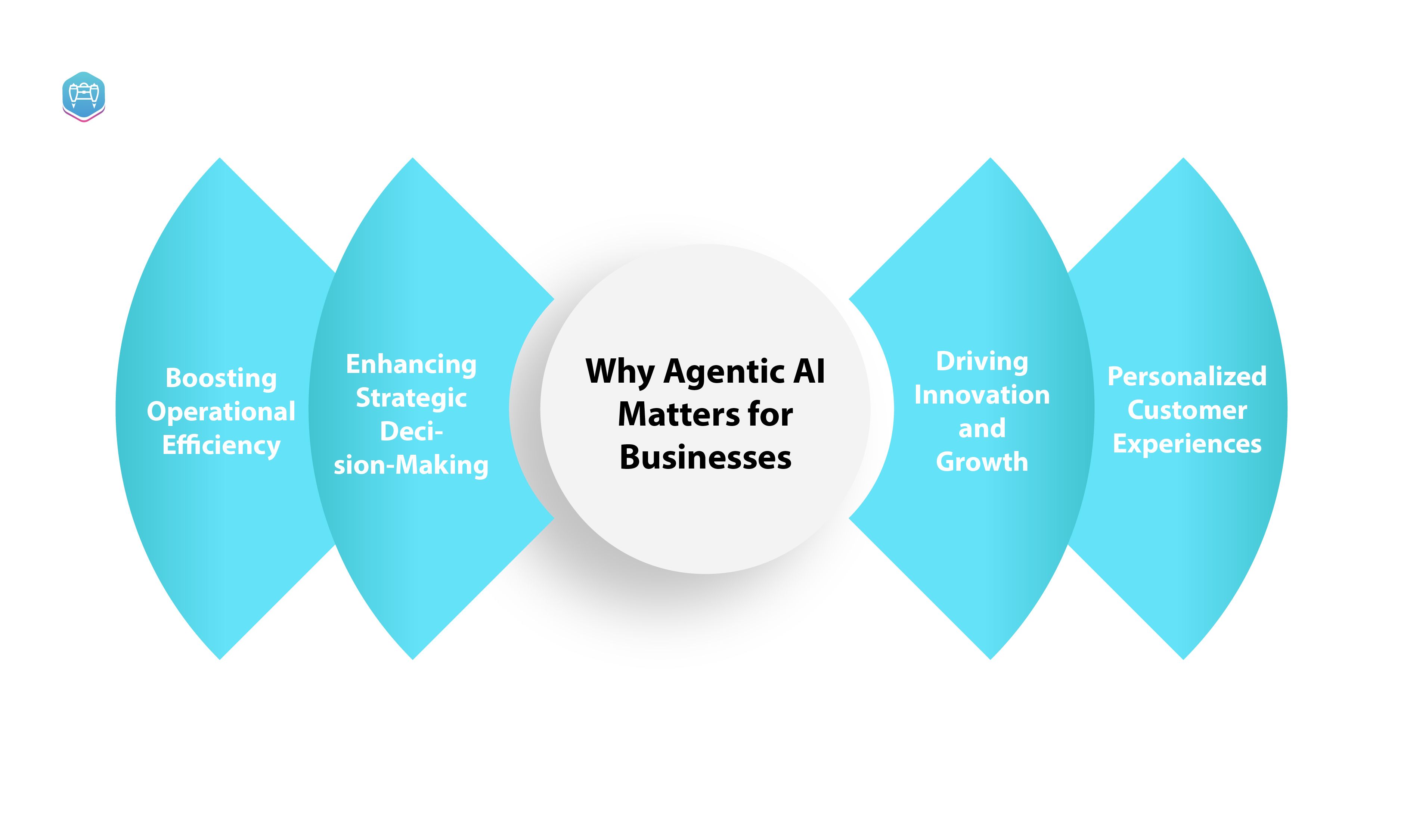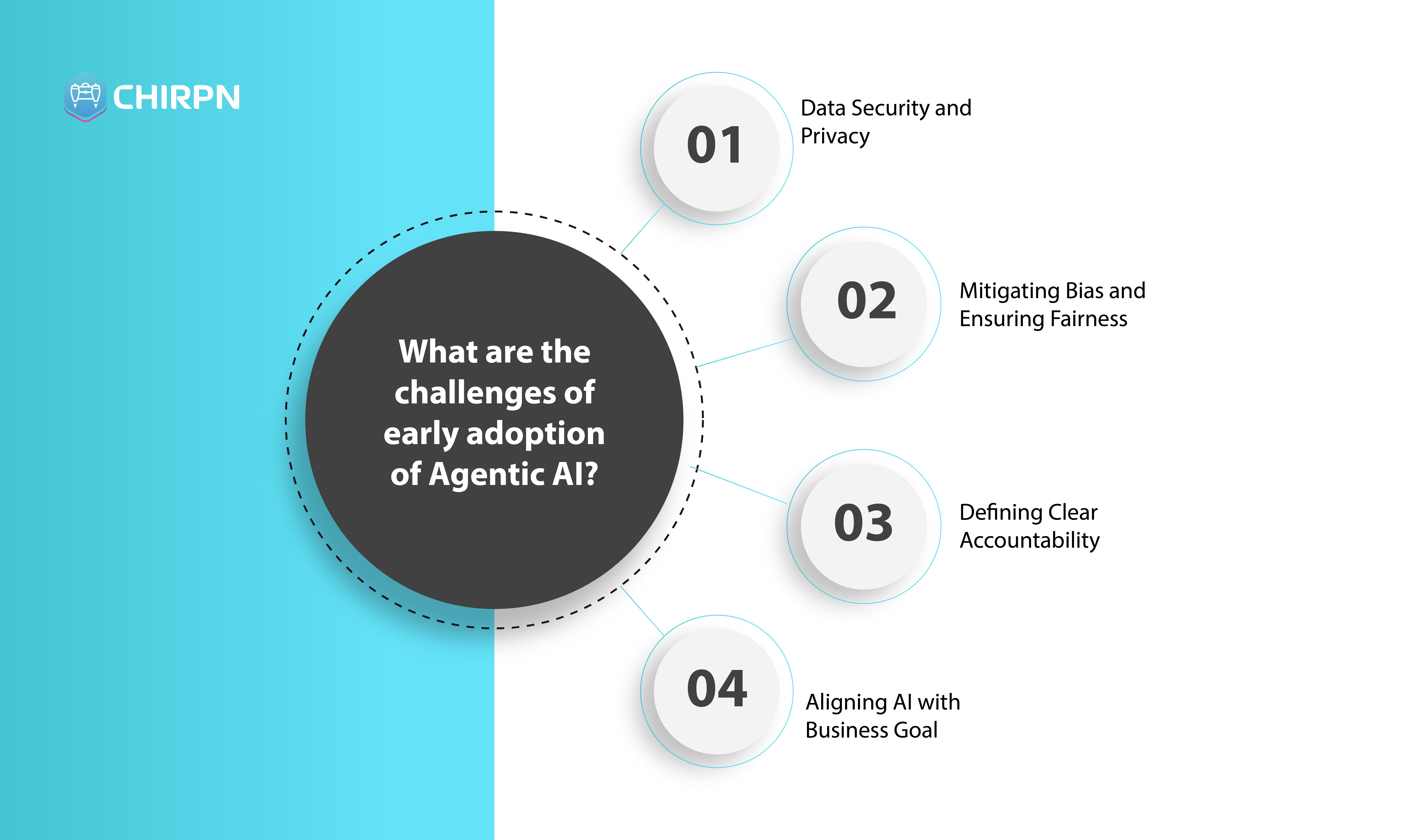Agentic AI has been getting a lot of attention and hype from industry experts, for all the right reasons. It has a higher autonomy and is not dependent on predetermined algorithms or human oversight. This technology can learn from their mistakes and make better decisions. But this is just the tip of the iceberg, it’s a vast subject to master. We will discuss Agentic AI, its benefits, limitations, and how it can transform industries in this blog.
Overview of Agentic AI
Agentic AI refers to AI systems designed to function autonomously, making decisions and performing actions without human input. These systems can perceive environments, process information, and act purposefully toward achieving specific goals. Unlike traditional AI models requiring constant human guidance, Agentic AI systems operate with high autonomy, learning and adapting continuously.
So what is the hype all about?
Let’s find out!
Agentic AI has the agency or the coherence to understand the task’s background and necessary details! If the task is complex, AI agents will break it down into subtasks, to make it more actionable. Think of it as a manager, who will assign and delegate tasks per the job profile.
However, these AI agents can make executive decisions and take action, not just study the data to provide insights. Let’s again assume the profile of a manager. The manager would check which tasks might need people with more technical language or not. Also, he can break down the chunks and classify them as per task intensity.
Understanding the difference between traditional AI and Agentic AI
Understanding Agentic AI's transformative potential requires contrasting it with traditional AI systems across sectors.
Traditional AI Applications
Traditional AI is the champion of predetermined and redundant tasks:
- Finance: Understanding the risk factors and stopping malicious agents from accessing sensitive data
- Retail: Offering better customer experience through AI-driven product recommendations.
- Manufacturing: It will tell companies about potential equipment failures in advance, thus improving product quality
Expanding Capabilities with Agentic AI
Traditional AI systems often need human oversight. Agentic AI extends capabilities by:
- Autonomous Operations: Managing entire processes from decision-making to execution.
- Dynamic Adaptation: Continuously learns and adapts in real-time, reducing the need for human input.
- Proactive Problem Solving: Anticipates issues and takes corrective actions before problems escalate.
- Comprehensive Decision-Making: Integrates insights from multiple domains for holistic decision-making.
Why Agentic AI Matters for Businesses

Agentic AI is a strategic asset that drives significant business value:
Boosting Operational Efficiency
Automating complex and repetitive tasks reduces manual intervention, streamlining operations and cutting costs. For example, in manufacturing, Agentic AI can oversee production lines, detect anomalies, and optimize workflows autonomously.
Enhancing Strategic Decision-Making
AI agents have better analytical capabilities, enabling organization-wide data-driven decisions. By analyzing vast datasets in real time, these systems uncover insights that inform strategic planning, risk management, and market analysis.
Driving Innovation and Growth
Employees can focus on creative and strategic initiatives when they don’t have to focus on non-relevant tasks. Agentic AI fosters a culture of innovation, allowing businesses to explore new products, services, and business models with greater agility.
Personalized Customer Experiences
Customer AI agents must understand customer data to deliver highly personalized experiences. From recommending products to customizing marketing messages, these systems enhance customer satisfaction and loyalty.
How to utilize Agentic AI across industries?
Logistics
Intelligent AI agents will have a field day in this department because they can track inventory data like normal AI. But it can also work best with unstructured and scattered data, or something that’s a bit ambiguous (social media listening). They can check what people are saying, and what’s going viral. They don’t need human involvement to recalculate routes to improve delivery efficiency and speed.
Information technology
Software development companies must remain agile and active to offer enhanced customer experience. Sometimes, it is not easy to remove the siloes from traditional systems, it needs a long overhaul.
However, if you have AI agents on the line, you may have an automated operations team. The project manager might gather notes from meetings, and use the insights to create Trello tickets. Despite all these, you don’t have to worry about governance and security, as the agents will carefully monitor the entire operation.
Let’s discuss another angle, improving an organization’s software development lifecycle. These agentic AI experts will automate the development, testing, and application deployment. If you integrate them into the workflows, you will free your non-AI developers from redundant tasks.
Project Management
We were already talking about project managers agents, but let’s dig deeper. They can focus on low-risk or repetitive processes, such as scheduling, documentation, and booking appointments. Using them in these tasks would significantly reduce downtime, without creating risks or issues.
Healthcare and Life Sciences
Agentic AI transforms healthcare by enabling precise diagnostics, personalized treatment plans, and efficient patient care. AI-powered systems analyze medical records, detect patterns, and assist doctors in making informed decisions. In drug discovery, AI accelerates new treatments by predicting molecular interactions and outcomes.
Human Resources and Workforce Management
Agentic AI streamlines HR functions by automating recruitment, onboarding, and performance evaluations. These agents can offer insights into skill gaps, training requirements, and attrition rates, and suggest better career paths for employees.
What are the challenges of early adoption of Agentic AI?

Despite its benefits, businesses must navigate challenges to ensure successful Agentic AI implementation:
Data poisoning
AI systems are becoming smart and autonomous, which is extremely beneficial for businesses. But it also presents a threat, enabling malicious agents to inject biased and misleading data. This can lead to potentially dangerous decisions and other risks.
Hacking the reward system
Sometimes, AI agents might modify or change their reward signals even if they have not accomplished the intended goals. If they are not scrutinized, companies may often miss these issues. When it happens, it can be extremely unmanageable and difficult to control.
Mitigating Bias and Ensuring Fairness
AI systems will only be unbiased if their training data is of high quality. Businesses must address potential biases in AI algorithms to ensure fair decision-making. Regular audits and transparency in AI processes are essential to mitigate bias.
Defining Clear Accountability
Defining accountability for AI actions becomes complex as systems take on more autonomous roles. Businesses must establish guidelines and frameworks to determine responsibility and address legal or ethical issues.
AI has come a long way, in 2024, generative AI changed the trajectory, and now it’s time for Agentic AI. Although there is a lot of misguided hype, we still think it would change how businesses think and operate. Yes, most businesses have not fully optimized their workflows or incorporated AI in business operations. Only 37% of them did it. But this year, the adoption rate will change, and the forerunners will move towards an advanced version, Agentic AI.
Are there any challenges with adapting this technology? Yes, but all that can be optimized through an AI-first approach, and our AutoCAR framework. With it, we have reduced the development timeline and helped businesses generate revenue for financial years.

